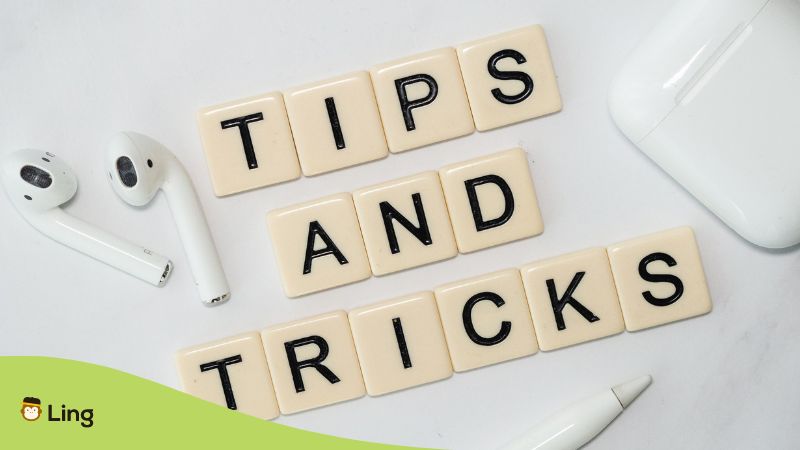Korean is a rich and expressive language that opens doors to Korean culture, history, and entertainment. Learning Korean can be rewarding, and it allows you to connect with Korean speakers, enjoy Korean media, and explore the traditions of Korea. Want to learn more about the easiest phrases to memorize? Read on below!
Today’s Korean language is a vibrant mix of historical roots and modern innovation, incorporating ancient linguistic structures alongside many newly-coined terms and slang influenced by technology, pop culture, and international interactions. From the logic of Hangul, Korea’s unique script, to the complexities of honorifics and ever-evolving colloquial expressions, the modern Korean language offers a fascinating window into the Korean people’s shared history and evolving identity.
Ready to learn more? Come along, and let’s jump down this rabbit hole!
Learn These Easy Phrases That Make You Sound Korean
In the heart of Asia, steeped in a rich blend of age-old traditions and rapid modernization, resides the Korean language – a dynamic linguistic system reflecting the ebb and flow of cultural influences and social changes. Here are some phrases that make you sound Korean:

1. 안녕하세요 (Annyeonghaseyo) – Hello
This phrase is a formal or polite way to say “Hello” in South Korea. It is commonly used to greet people, especially those older or in a higher position. The phrase translates to “Are you at peace?” but is used like “Hello” in English.
Note that the Korean language has different levels of politeness, so how you greet someone can change depending on your relationship with them. For more information about greetings, read our guide.
2. 감사합니다 (Gamsahamnida) – Thank You
Expressing your gratitude in formal and casual conversations can help you earn brownie points if you know the right phrases to use. 감사합니다 (Gamsahamnida) is the standard way to say “Thank you” in Korean. It is suitable for most situations, as it is polite without being overly formal. For other expressions, check out our exclusive “thank you” guide.
3. 눈에는 눈, 이에는 이 (Nune-Neun nun, Le-Neun Le) – An Eye For An Eye, A Tooth For A Tooth
This Korean idiom directly translates to “An eye for an eye, a tooth for a tooth.” It mirrors the English idiom with the same meaning, suggesting that retribution or punishment should match the severity of the offense or harm caused. This originated from ancient laws, where the penalty for an offense was to receive the same harm you caused others.

4. 대박 (Daebak) – Big Win/Amazing
Want to express your amazement and sound like a native? Try saying 대박 (Dae-bak), which is a widely used Korean slang word. It’s often used to express surprise, amazement, or success. It can be translated into English as “Wow. The literal translation of “대박” is “big win,” as in hitting the jackpot. Just like other languages, the use of slang terms can vary depending on the situation and the person you’re speaking with. Note that it is pretty casual, so it’s best used with friends or in informal cases.
5. 멘붕(Menbong) – Mental Breakdown
멘붕(Menbong) is a shortened word for “멘탈 붕괴” (Mental Bunggoe), which translates to “mental breakdown” in English. This Korean word is used when someone is extremely shocked, surprised, or confused to the point where they feel like they’re having a mental collapse. For example, if something very surprising or unexpected happens, a Korean speaker might exclaim, “완전 멘붕이야!” (Wanjeon menboongiya!), which can be translated as “It’s a total mental breakdown!”

6. 헐 (Heol) – No Way!
Imagine hearing good tea from your Korean friends. You may subconsciously mumble 헐 (Heol) to express your disbelief. It’s a very popular and versatile cool Korean slang term used to display surprise, doubt, or shock, similar to “Wow,” “Oh my!” or “Seriously?” in English.
7. 화이팅! (Hwaiting) – Fighting!
Boosting a friend’s morale is a great way to hype them up. So, don’t forget to say 화이팅 (Hwaiting) to cheer on your friend. This basic slang word is roughly equivalent to “You can do it.” This term is derived from the English word “fighting” but is used with a much bigger meaning in Korean.
8. 베프 (Beh-Peuh) – Best Friend
Want to confuse your best friend? Try using this endearment on them to put creases on their forehead immediately. This Korean slang phrase is a shortened version of the English term “Best Friend.” It’s pronounced similarly to “Beh-Peuh.” The term is widely used among younger people and on social media platforms to denote a close friend.
9. 행쇼 (Haeng-Syo) – Be Happy
“행쇼” (Haengsho) is a Korean expression that is derived from “행복하십시오” (Haengbokhasipsio), which means “Be happy.” It’s often used as a way to say goodbye or to wish someone well. This phrase became popular among young people and on the internet, and it’s considered relatively casual language. You could use it with friends or in situations that do not require high formality.

Tips To Sound Like A Korean Native
1. Immerse Yourself
The more you listen to the language, the better you understand the intonation, pronunciation, and rhythm. Watching Korean movies, dramas, listening to K-pop, or tuning into Korean radio can be very beneficial. You’ll also encounter basic Korean slang words by exposing yourself more to their culture.
2. Practice Pronunciation
Korean has tones that aren’t common in English, so mastering these will make a huge difference. For example, understanding and properly pronouncing the different types of ‘b/p,’ ‘d/t,’ and ‘g/k’ sounds, or learning how to pronounce the tense consonants (ㄲ, ㄸ, ㅃ, ㅉ, ㅆ) can make you sound more natural.
3. Learn Hangul
If you’re serious about sounding like a native speaker, learning Hangul, the Korean alphabet is important. Relying on Romanized Korean can lead to mispronunciations, so learning the Hangul spelling is crucial.
4. Study Sentence Structure
Korean sentence structure is Subject-Object-Verb, which is different from English. Once you start learning Korean, you may get a little confused, but practicing this structure will help your sentences flow more naturally. Learning these rules also helps you deliver phrases that make you sound Korean easier.
5. Learn Honorifics
Politeness is essential in Korean culture. Understanding the levels of politeness and when to use them is crucial to sounding like a native speaker. Understanding this part of their culture allows you to communicate with different people without sounding disrespectful.
6. Learn Slang And Idioms
Korean slang terms, idioms, and cultural references can give you an edge in sounding more like a native speaker. Just be sure to use them in appropriate situations. This also allows you to take a deeper dive into their culture. So, learning these slang words and idioms is like a strategy game for fishing for more knowledge.
Did You Enjoy This List Of Korean Phrases And Tips? Try Ling Today!
Does learning these common phrases, slang, and idioms help you get a clearer image of what it’s like to attain complete mastery of the Korean language? This post barely tackles half the things you need to learn to speak Korean fluently, but worry not because Ling’s here to help you out.
With the app, you’re not just learning a language; you’re immersing in a new way of life. It offers interactive lessons, exciting games, and real-world dialogues that bring you face-to-face with the language and culture of your dreams. You’re not memorizing words; you’re building bridges to new friendships, opportunities, and adventures. Download Ling now for FREE on Play Store and App Store!



































































